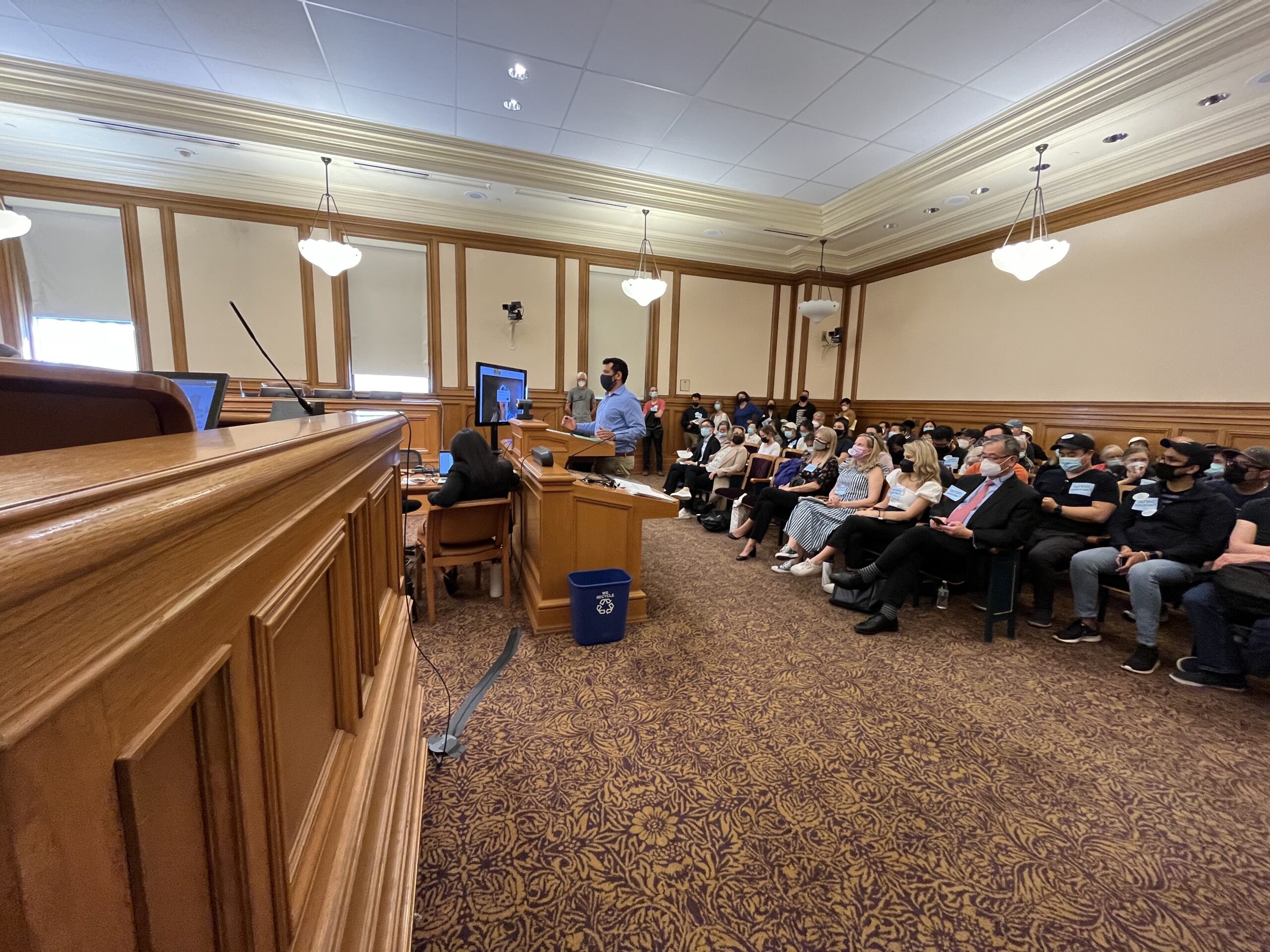Both the room and the scrutiny were hot on Friday as three members of the city’s Redistricting Task Force took the stand to defend their work in redrawing San Francisco’s supervisorial lines.
Ultimately, the three task force members—Ditka Reiner, Chasel Lee and Raynell Cooper—retained their seats after the commission declined to even put their removal up for a vote, saying it’s critical to hold up the independence of both bodies. In fact, their work was lauded in a letter from the commission and statements of support from the public.
“While we may disagree with their decisions…I don’t think it is our place to take action based on those decisions,” said Becca Chappel, vice president and acting chair of the commission.
At Friday’s meeting, more than 100 people sweltered in an over-capacity City Hall chamber at the conclusion of an unseasonably warm week in San Francisco. And a technical difficulty, cutting off audio in the room, delayed the meeting by half an hour. The audio was not fixed by the start of the meeting so the commissioners and speakers did their best to shout, removing their masks at times.
After months of reviewing census data and map possibilities, debates over redistricting came to a head on Monday night when the Redistricting Task Force—which is responsible for redrawing supervisorial district lines according to new census results—made a 3 a.m. decision, following hours of public comment, to throw out the map it had been working on in favor of a new one. The timing of that decision drew the ire of progressive political groups, who swiftly mobilized to accuse the task force of unfairly splitting up communities.
Task force member Raynell Cooper defended that vote, noting the group is only a tight timeline–it must submit a final map to the Board of Supervisors by April 15–and that it had little time to spare.
“Two to 3 a.m., probably not an ideal time to have a vote,” Cooper said. “But we were less concerned about how late into the night it was and more how late in the calendar we were.”
Vice chair Reiner and member Chasel Lee echoed Cooper’s defense of their work, saying they scrapped Monday night’s map after realizing they would either have to split up key communities of interest or change the map entirely—and chose the latter. That tough decision, Lee said, is emblematic of the difficult work the volunteer task force has been doing for the past few months.
“We often made those decisions with heavy hearts,” Lee said. “And we made them in the spirit of having a map the city could either be proud of or the city could work with for the next 10 years.”
People wearing stickers reading “defend democracy” filled the seats to oppose the members’ removal. Others came out in support of their removal and had yellow fliers outlining talking points for the public comment period. Halfway through the meeting, around half the audience left to give public comment at the Redistricting Task Force meeting that was happening at the same time. The meeting lasted around seven hours, including three hours of public comment.
Critics of the task force had accused the task force of not doing enough to hold communities together. Two letters, one from the League of Women Voters of San Francisco and Asian Americans Advancing Justice (Asian Law Caucus) and the other from ACLU of Northern California’s San Francisco chapter, underscored a need to incorporate community input.
Representatives from each of those groups spoke on Friday arguing for more work to include marginalized communities in the process. But the groups declined to take a position on the removal of the members or give any specific details on the action they’d like to see from the board. Julia Marks, staff attorney for the Asian Law Caucus, echoed their comments, highlighting language access issues and calling for increased transparency in the task force’s decisions.
“It’s really on you all to look at the process that’s happened,” Marks said. “Is it clear the task force is listening to the community?”
Arnold Townsend, the task force chair who was appointed by Breed, said the group wasn’t created until September and doesn’t control things like the budget for language interpretation—but said he’s committed to continuing to advocate for language access. He said so many of their actions and words were taken out of context this week.
“We did not sweep into City Hall at 3 a.m. and call the vote,” Townsend said. “We called the vote when we finished public testimony.” The task force met on Friday and has its final few meetings scheduled for this Saturday and Monday and Wednesday of next week before they must submit their final map.
